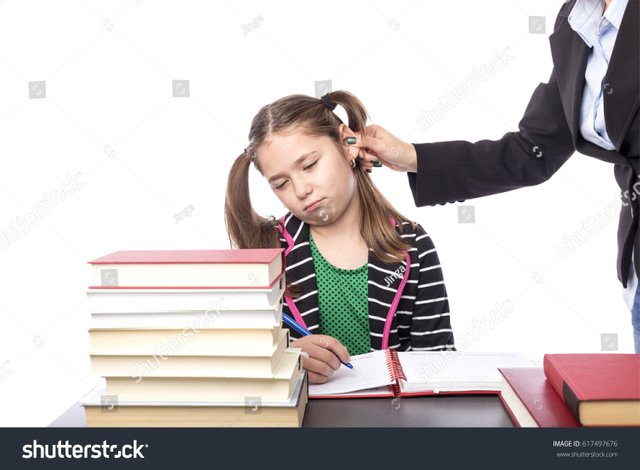Why do teachers easily punish students?

You may often punish your students for the mistakes they make, both in class and in the school environment. I've done it too.
Each teacher has their own way of giving punishment to their students. From some of my experiences, I see that there are three types of teachers dealing with students in the classroom. The first type is a fierce, angry, and assertive teacher. This type can easily punish their students directly. The punishment is very diverse, ranging from physical punishment and verbal punishment. However, these punishments do not intend to hurt the students' feelings. The teachers reasoned that this punishment deserves to be disciplined for the students.
While the second type of teacher is an apathetic teacher. This teacher rarely punishes their students. Sometimes they do not care about the students' behavior. The third type of teacher is the teacher who often advises students when they make mistakes.
Student punishment must be applied. However, the problem here is the absence of specific rules regarding punishment based on the degree of mistakes made by students. I can understand it because the students' behavior and teacher style are different.
Then, what causes teachers to easily punish their students?
Teachers often position themselves as executors in the classroom. Teachers rarely position themselves as facilitators. This paradigm has become a kind of inheritance still held by teachers. So when students make small mistakes in the classroom, teachers easily punish them without any attempt to understand the student.
Unlike the teachers who position themselves as facilitators, teachers will find out why the student is doing something wrong. It does take time. So, teachers can talk to students who make mistakes outside of school hours. Let's look for the best solution for them.
It is a good idea that before the lesson begins, teachers and students must make arrangements about what is allowed in the classroom and what is not allowed in the classroom. This agreement can be determined at the first meeting at the beginning of the semester. Well, when this "special rule" has been determined, students are required to obey this rule. If not, then they must be prepared to accept all the consequences.
Education requires a sustainable process. The goal of students to study at school is not just to acquire knowledge, but also to learn to discipline.
I fear the entire education system is broken at a fundamental level. Students are treated as raw material that must fit a specified mold, and those who don't fit are often treated as if they are worthless. When I attended public school, I found the classroom environment dreadfully boring due to the slow pace set by the teacher for the median student's abilities. I much preferred the college environment with a lecture followed by self-directed work. I often think that kids who don't fit the school mold need to be free to explore alternatives. Those who are disruptive need a learning environment that fits them, and not be made to fit into an environment that can't work for them.
I do agree. College environment sets students to be more active on seeking what they want in learning. Primary school in developing country like Indonesia, student tend to wait what to do. They commonly imperated during learning process. They will do what teacher asks and stop when teachers says so.
There is a thin line between being an assertive teacher who punishes and a facilitator who tries to empathize with the student. This lead to questions that borders on the extent of students misbehaviour before facilitating turns to punishment.
The problem stems from having one teacher for many students. They cannot effectively play the mentor role and spend time with each child, nor can they direct that child in correct behaviour. Instead, they have many pupils, all of different personalities and at different intellectual stages and development. In order to maintain order in the class room, they can use rewards or punishment, and punishment is the easy way out.
That is one of the problems in our country. This limitation causes us as teachers to work hard.
Thank you for your comment!
As a teacher, you immediately have my respect. Passing on knowledge is the most important thing a person can do, apart from teaching critical, logical and rational thought process and how to do research yourself.
The old saying - give a man a fish, you feed him for a day, teach a man to fish, you feed him for a lifetime. Sure you can impart all the knowledge the world has to offer, but with out teaching people how to analyse the knowledge they have and research further, it is useless.
I think, a punishment given also must educate, Gu Check @teukumukhlis.
good post, I like your post ..
I need your support please visit my blog https://steemit.com/@muliadi
if you like my post please give upvote, resteem &follow me.
thank you, keep on steemit
I am a teacher and I don't punish my students. We have an agreement between us!
its must be have a stonge reason to punisht the student.
Kasian liatnya
postingan yang bagus
Saya sudah vote anda kawan jangan lupa mampir di postingan saya ya @dedikurniawan
Terima kasih atas perhatiannya ya
This is very informative and useful artical. I raelly appreciate your opinions and suggestions. You have discussed on very important topic. It's really helpful for us.